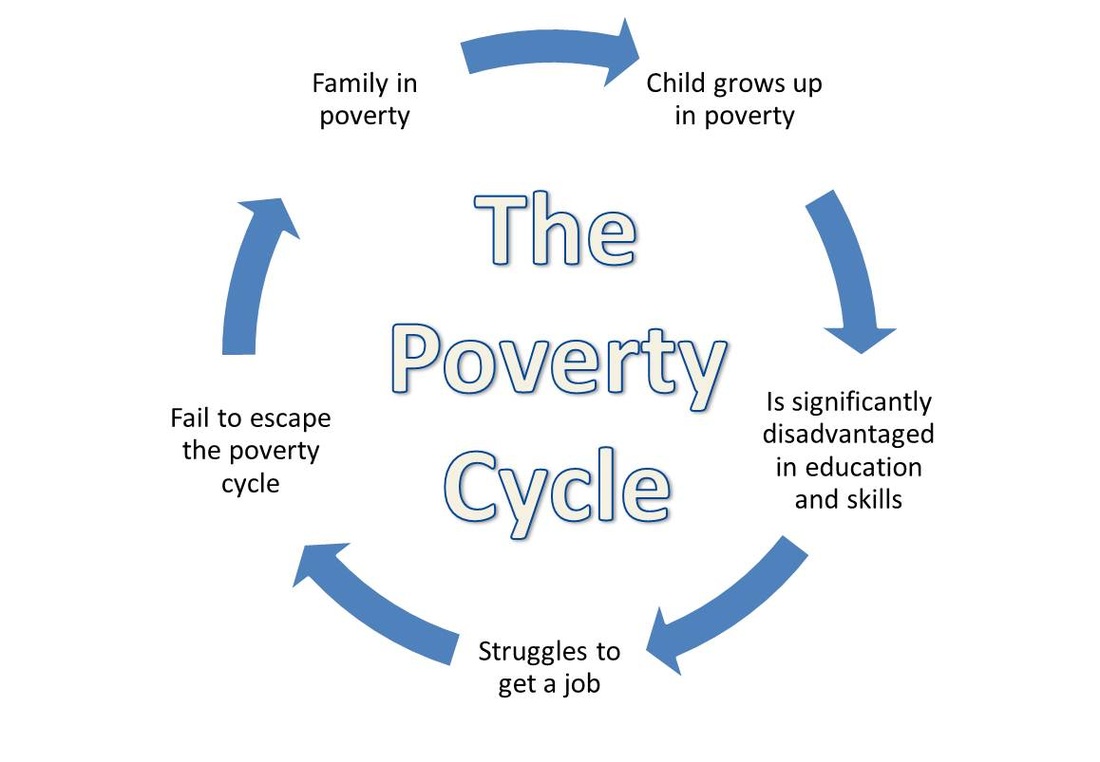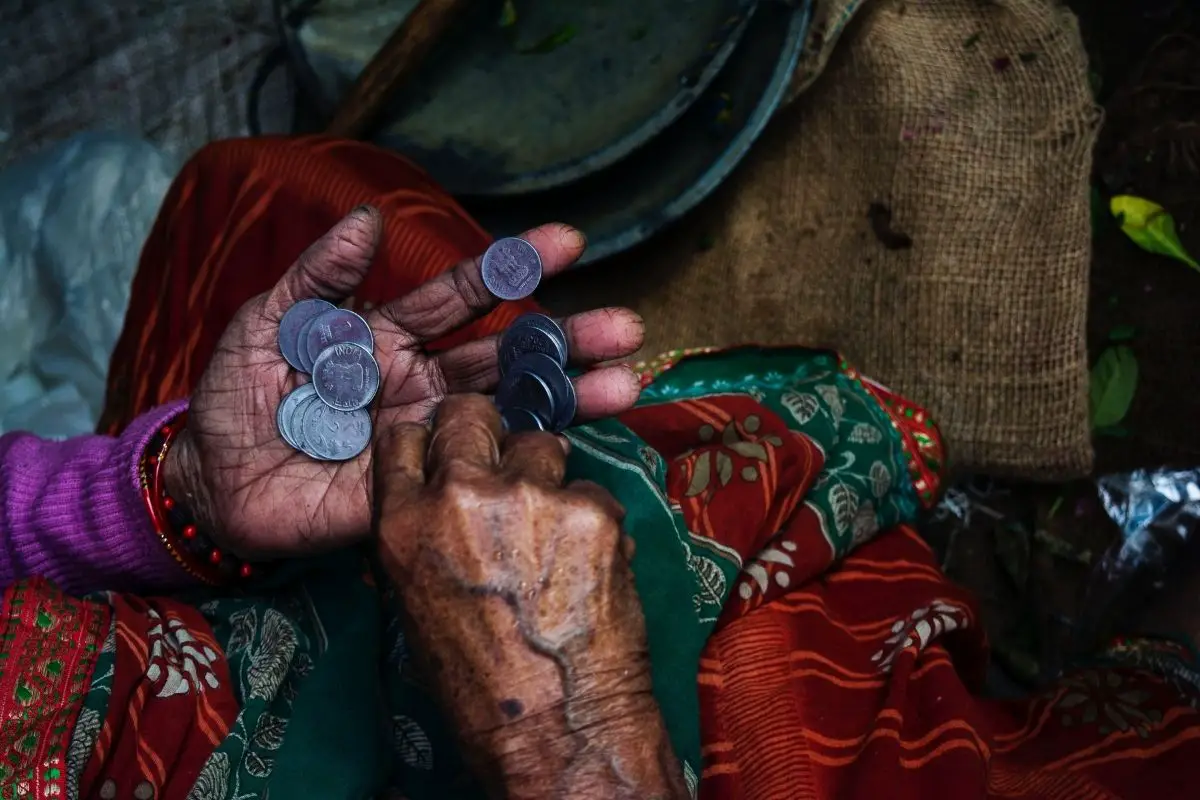The Cycle of Poverty describes a loop in which poverty persists in a whole family’s tree for years: a child lives in impoverishment, grows up unemployed, and later cannot secure sufficient finance for their family.
How to break this seemingly endless chain of devastation? How can a child grow up receiving adequate resources to develop and escape poverty? This article is dedicated to answering these questions.

What Causes The Cycle of Poverty?
Everything happens for a reason. We attributed this phenomenon to 3 main reasons: Lack of Education, Lack of Resources, and Lack of Determination. Each culprit reflects an aspect of poverty, from outer influences, including available resources in a person’s living environment, to inner factors like their will and spirits to fight against poverty.
You can read these in detail in a related blog called “What is Generational Poverty,” We provide both the causes and solutions for the mentioned matter.
How Can We Break The Cycle of Poverty?
They said, “Where there is a will, there is a way.” Eliminating poverty and ending this cycle requires long-term and collective efforts from governments to households and individuals. We will be looking at 2 stages in the human cycle – childhood and adulthood – to solve the problems faced by each stage.
“All kids need is a little help, a little hope and somebody who believes in them.”
Magic Johnson
1. Childhood stage
To prevent the cycle from repeating itself, merits should be taken to lift youngsters from poverty. In a TedX speech delivered by Duncan Campbell, he said, “Children are resilient when supported.”
Parents are responsible for providing their offspring with the best living conditions; however, they lack the resources to accomplish such a goal in poor households. Because opportunities and resources are factors that an individual cannot control, poverty continues for generations.
Therefore, we believe support to children can be given in mental empowerment besides financial funds. If poor parents cannot make enough income, they can be the encouragement source and motivation for their children to look up to and grow. That determination to end the longstanding poverty might leave an even more significant impact on the youth because it gradually builds their resilience and perseverance to move forward in difficult situations. The unwillingness to try and fight against poverty is sometimes what sticks a family in misery.
Empowerment also refers to encouraging youngsters to go to school. As we know, education is an influential tool to end global poverty. Even if forcing children to adopt labor job can meet the short-term needs of income, families that restrict children to study is throwing away their high chance to be self-reliant and escape poverty in the future.
Adulthood Stage
“We find that individuals who grow up in poor families are much more likely to be poor in early adulthood.” – said Robert Lee Wagmiller and Robert M. Adelman from National Center for Children in Poverty (NCCP). Unlike the previous stage, poverty experienced by adults continues due to their incapability in pursuing medium-to-high-paid jobs and unwise use of money.
Regarding employability, It’s never too late to go to school to learn a skill. School here does not confide to the K12 system or colleges, but it can be short courses that teach a person new practical skills to maintain a job. As there are not so many free classes like that, we believe government and NGOs devoted to combating poverty should organize workshops or training for unemployed and impoverished individuals. This will have more lasting effects on in-need people than sponsoring them with money because it gives them the knowledge to make a living on their own.
The most critical measure is for adults to understand how to use their money and available resources. Be extremely cautious in how to invest your money and utilize it. It is recommended by Lauren Bringle, AFC®, to avoid payday loans, as they can lead to you stuck in a cycle of debts. In addition, exploiting free resources is a saving way to find help from the community when you face extreme difficulties. There are always community service groups and grassroots like Project Sprouts where you live that would be a delight to help low-income families and people. It’s up to you to make contact and stand up for your own benefits.
At Project Sprouts, we realize that we can not solve all the problems in a situation like this. But we can seek to make a difference in the lives of needy children by giving them school supplies and encouraging them to continue their education; we can give them winter coats, boots, and blankets to help them stay warm during the cold winter months.
Project Sprouts would love to have you be a part of our community and help us help worthy children in North Vietnam.
You can find out more about Project Sprouts by clicking here or going to our give now page to donate by clicking here. As we are a grassroots organization, all funds help those in need.
Related Content:
What Is Generational Poverty?
Generational Poverty means staying impoverished for two or more generations. Poverty is not an incurable disease, yet it is passed down to one generation after another. This is usually called “the Cycle of Poverty,“ where everything begins once again after it is finished, persisting in a whole family’s tree for years.
You can read more by reading What Is Generational Poverty? by clicking here.
Is It True That The Rich Are Growing Richer, And The Poor Are Growing Poorer?
In this day and age, the problem of class distinction between the rich and the poor is becoming more serious. Each class has its prejudice and one-sided view of the other when they see other people’s problems with their personal views. Therefore, whether the poor can only get poorer and the rich always get richer in today’s society has become a hot topic of debate on social networking sites.
Then, What Is Distance Learning? You can read more by reading Is It True That The Rich Are Growing Richer, And The Poor Are Growing Poorer? by clicking here.


